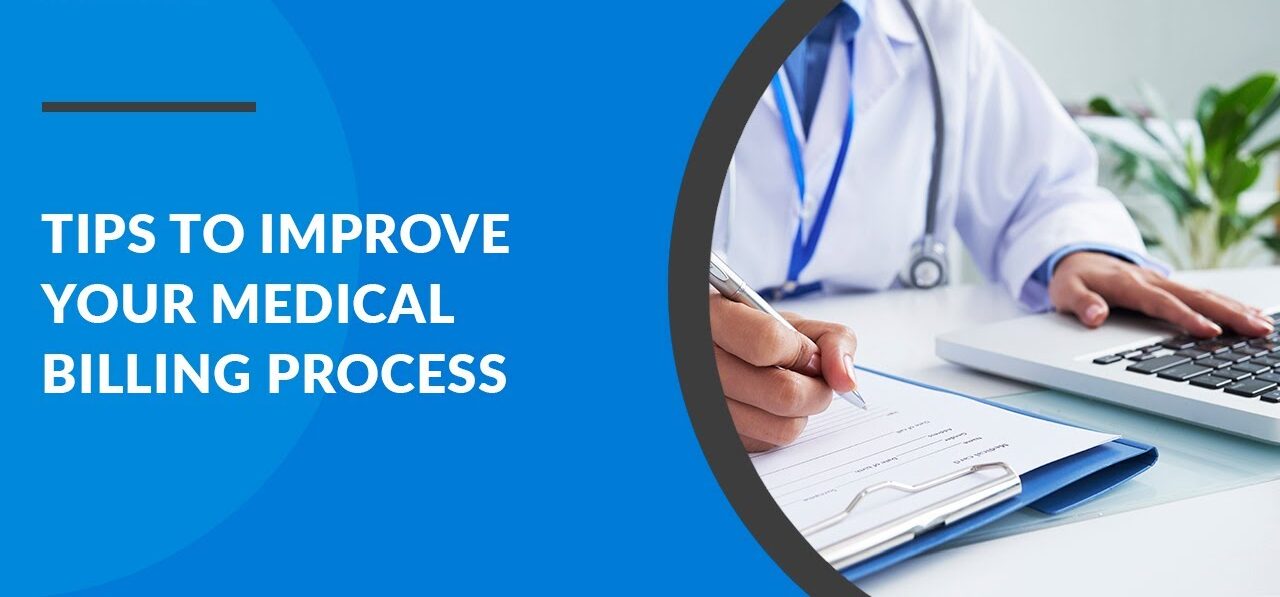The healthcare industry’s financial operations are dependent on medical billing and revenue cycle management (RCM). They both ensure that healthcare organizations receive their payments accurately and on time. On one hand, healthcare providers submit claims to patients and insurance companies for medical billing. At the same time, the revenue cycle management (RCM) process involves managing cash flows from patient registration to receiving the final payment. An effective company providing medical billing services ensures full and efficient reimbursement for providers and, therefore, helps in maintaining a healthy cash flow. Healthcare facilities must streamline these operations to reduce claim denials, ensure no payment delays, and ensure overall financial security.
Strategies that improve the Medical Billing process
Vital for a constant income stream and gaining patient confidence, the medical billing system is quite often intricate and difficult. Healthcare practitioners can simplify their invoicing processes and raise fiscal standing by adopting effective techniques. The following are 13 ways in which you can enhance your medical billing process and efficiency.
Do you want to visit Haridwar? travel agents in Haridwar is the right place to plan your tour. You can book your tour from here.
Embrace Electronic Health Records (EHR)
A streamlined and direct medical billing process is well integrated using EHR systems. They help get the correct patient information, which minimizes errors and speeds up the process of invoicing. EHRs automatically generate claims, reducing manual mistakes. Many systems directly link to payers, simplifying claim submissions and tracking.
Improve First-Pass Yield
First-pass yield measures the fraction of claims that were settled immediately after submission for the first time. To enhance cash flow, strive for a 95% first-pass yield rating. More claims accepted on the first pass lead to fewer rejections and payments done quickly, increasing efficiency in medical billing.
Do you want to visit char dham? char dham tour operator is the right place to plan you Char Dham tour. You can book you tour from here.
Identify Errors Before Submitting
Using error-checking software before submitting can discover possible issues early, which helps reduce claims denials. This saves a great deal of time and improves the chances of success for your medical billing process by identifying and correcting mistakes prior to submission.
Regularly Train Your Staff on Patient Intake
A patient’s intake is a firm base in the medical billing process. Periodic training guarantees that staff members obtain not only complete but also precise patient details, thus enhancing billing precision and reducing disputes altogether.
Do you want to visit Indiar? tour operator in India is the right place to plan your tour. You can book your tour from here.
Implement Automated Billing Systems
Automated systems have simplified the procedure of charging patients for treatments by minimizing manual entry errors, enhancing the speed of invoicing, and allowing real-time tracking of claims. Automation ensures that claims are filed on time and reduces the time spent on manual recalls.
Conduct Regular Audits and Update Patient Files
Routine audits play a crucial role in detecting and correcting billing errors. Constantly updating patient files with all relevant information further enhances medical billing accuracy. Audits also serve as a form of protection against theft of medical identities.
Stay Updated with Billing Regulations
The medical billing process is subject to ever-changing regulations. The reason for being informed of updates is that this ensures compliance and minimizes the chances of incurring penalties or facing legal challenges.
Track Denials
The reasons behind the denial of claims can be determined through tracking. This enables providers to employ corrective measures and reduce the number of denied claims over time, thereby improving medical billing systems.
Optimize Patient Communication
Achieving a fluid flow of medical billing requires clarity of communication and utilizing various pathways such as patient portals, frequently asked questions (FAQs), and billing statement itemization to enlighten patients regarding their monetary tasks, thus enhancing trust while diminishing disagreements.
Offer Multiple Payment Options
Patients can easily settle their bills due to flexible payment plans and several methods of payment. This is a straightforward but powerful strategy to increase the efficacy of your medical billing system. It ensures that payments are made on time.
Reduce Coding Errors
Claims are denied, and sliding-off payments occur due to coding mistakes. To avoid these errors, make correct claims, and improve medical billing, one should invest in training and coding verification tools, which help eliminate such mistakes.
Outsource Billing When Necessary
Using specialized healthcare billing services could greatly enhance precision plus lower managerial expenses. By hiring professionals in the medical billing field, you take advantage of their know-how as your personnel concentrate on attending to patients and streamlining the invoicing systems.
Use Analytics to Identify Bottlenecks
- Analytics can greatly benefit the performance of the medical billing process.
- They provide insights that help identify problem areas that lead to inefficiency.
- They track trends like seasonal claim spikes, which are common to most people.
- The use of key performance indicators (KPIs) is important in optimizing operations and predicting possible challenges.
Following these suggestions can make your medical billing practices more efficient and accurate. They help you manage your revenue cycle even better. You may want to use medical billing services so as to achieve more effectiveness, correctness, and regulatory adherence.
Conclusion
Improving the medical billing process is necessary to keep the healthcare practice financially stable and maintain a healthy revenue cycle. Providers greatly improve accuracy and efficiency when they employ various strategies, such as automated billing systems. It also includes regular staff training, conducting audits, and keeping themselves abreast of regulations. Besides, when providers engage in medical billing services. They benefit from specialized knowledge that helps minimize mistakes, optimize billing, and enhance compliance. This way, increasing revenues and patient satisfaction levels leads to better results.
